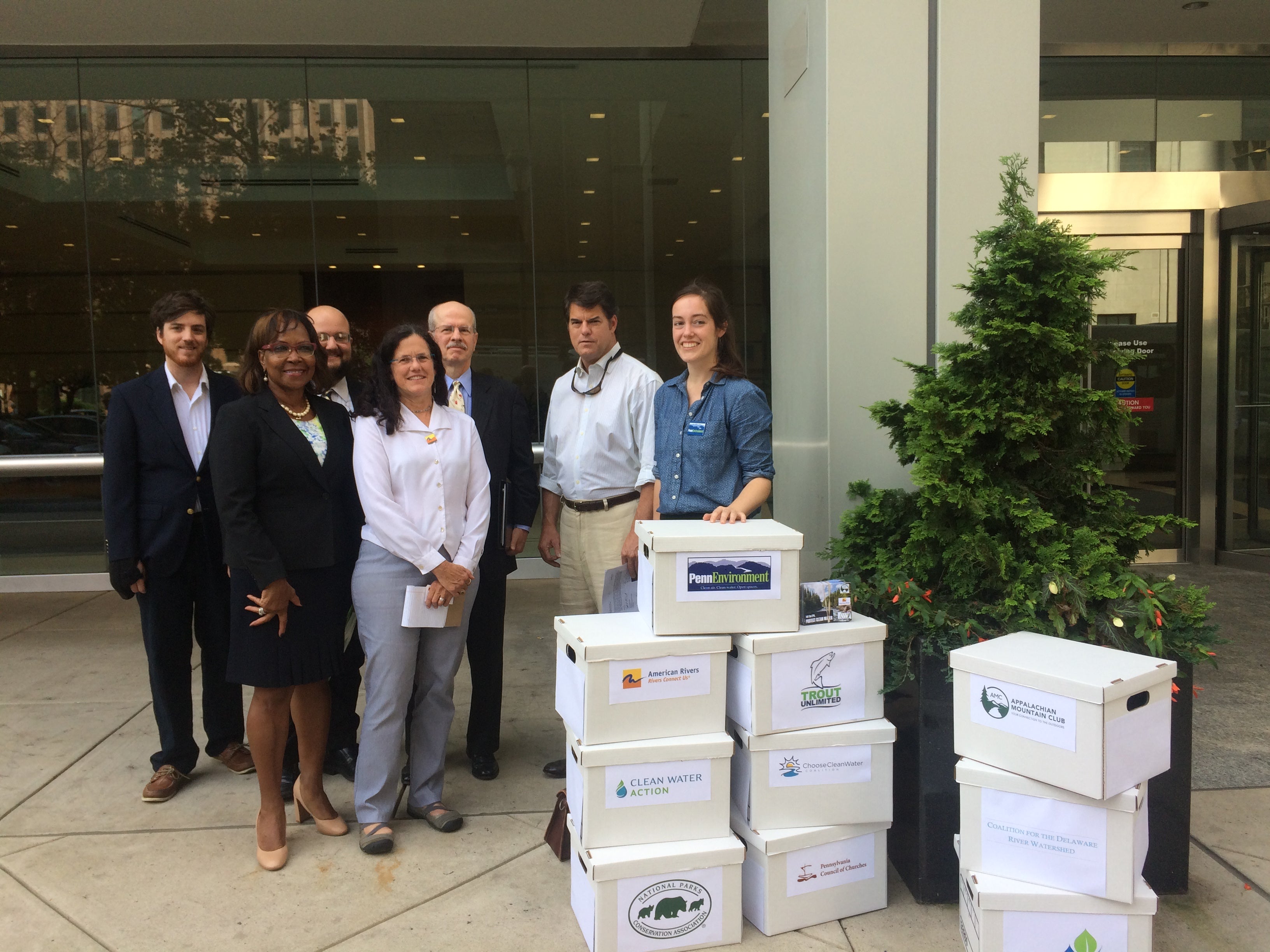Pennsylvania environmental activists submit 20,000 comments on proposed changes to EPA’s clean water rule

A coalition of Philadelphian environmental organizations hand-delivered more than 20,000 public comments to the U.S. Environmental Protection Agency’s (EPA) Philadelphia office last week, all in support of the Water of the United States Rule — also known as clean water rule — created by the Obama administration in 2015.
The rule defined the scope of the “waters of the United States” protected by the Clean Water Act from discharged pollutants. But because the new definition included small waterways and isolated wetlands, oil and gas industry, home builders, and farmers said it was too broad, covering mostly-dry areas. By expanding the regulatory reach, those industries complain that the rule forces them to either spend more in compliance or cut back where they plant or build to avoid the newly-designated wetland.
Last February, President Donald J. Trump instructed the EPA and the Army Corps of Engineers to effectively rescind the rule by replacing it. In July, the agencies published a proposed rule that starts the process of reviewing and revising the definition of “waters of the United States,” without changing it yet. The public commenting period for it closes September 27th.
“We have to protect the headwaters and the small streams because ultimately they all flow into the large streams,” PennEnvironment’s Stephanie Wein said. “If we get our drinking water for Philadelphia from the Delaware and the Schuylkill, we can’t just protect the Delaware and the Schuylkill. We have to protect everything that flows into the Delaware and the Schuylkill.”
The Clean Water Act prohibits anybody from discharging pollutants through a point source into a “water of the United States” unless they have a National Pollutant Discharge Elimination System permit. But in 2006 the Supreme Court ruled that the agency the needed a more precise definition of which waterways are — and are not — covered by the Act. The 2015 Clean Water Rule was the result of years of research.
The Obama-era rule includes very small bodies of water and intermittent or ephemeral streams that only flow when there’s a heavy rain. Because these intermittent tributaries flow into larger rivers, the only way to ensure those sources of drinking water remain clean is to regulate the pollution at the source, the rule’s backers argue. The clean water rule also protects isolated wetlands and ponds like Prairie potholes.
Local environmental organizations worry that by replacing the Clean Water Rule, years of work and efforts will be lost. They’re also concerned because at that time the EPA considered the rule vital for water quality in bigger downstream waterways.
“Eight million people, eight million residents — fact — will be affected if there’s a repeal of this measure,” said city councilmember Blondell Reynolds Brown, chair of council’s committee on the environment. “There’s a lot to be said for collective voices on an issue that ultimately impact all of us. And if that’s all we got a chance to do, then let’s do that. But to do nothing is unacceptable.”
The 20,000 public comments were symbolically delivered in boxes with the names of the environmental organizations they were coming from — PennEnvironment, American Rivers, Trout Unlimited, Appalachian Mountain Club, PennFuture, Clean Water Action, the National Parks Conservation Association and Coalition for the Delaware River Basin. The actual comments, which EPA staff must review before promulgating a new rule, are all delivered electronically through the EPA website. So far, the Trump administration’s proposed rule to replace the Obama-era regulation has received 185,829 comments nationwide.
A study published in July by the advocacy group Environment America said 55 percent of all stream miles in the Delaware River Watershed will be left without federal protections if the clean water is repealed.
“If we have polluted water entering into Philadelphia system, then it becomes expensive for Pennsylvania to treat it, for the Philadelphia Water Department to ensure that water is healthy enough for people to use,” said American Rivers’ Liz Deardorff.
WHYY is your source for fact-based, in-depth journalism and information. As a nonprofit organization, we rely on financial support from readers like you. Please give today.





